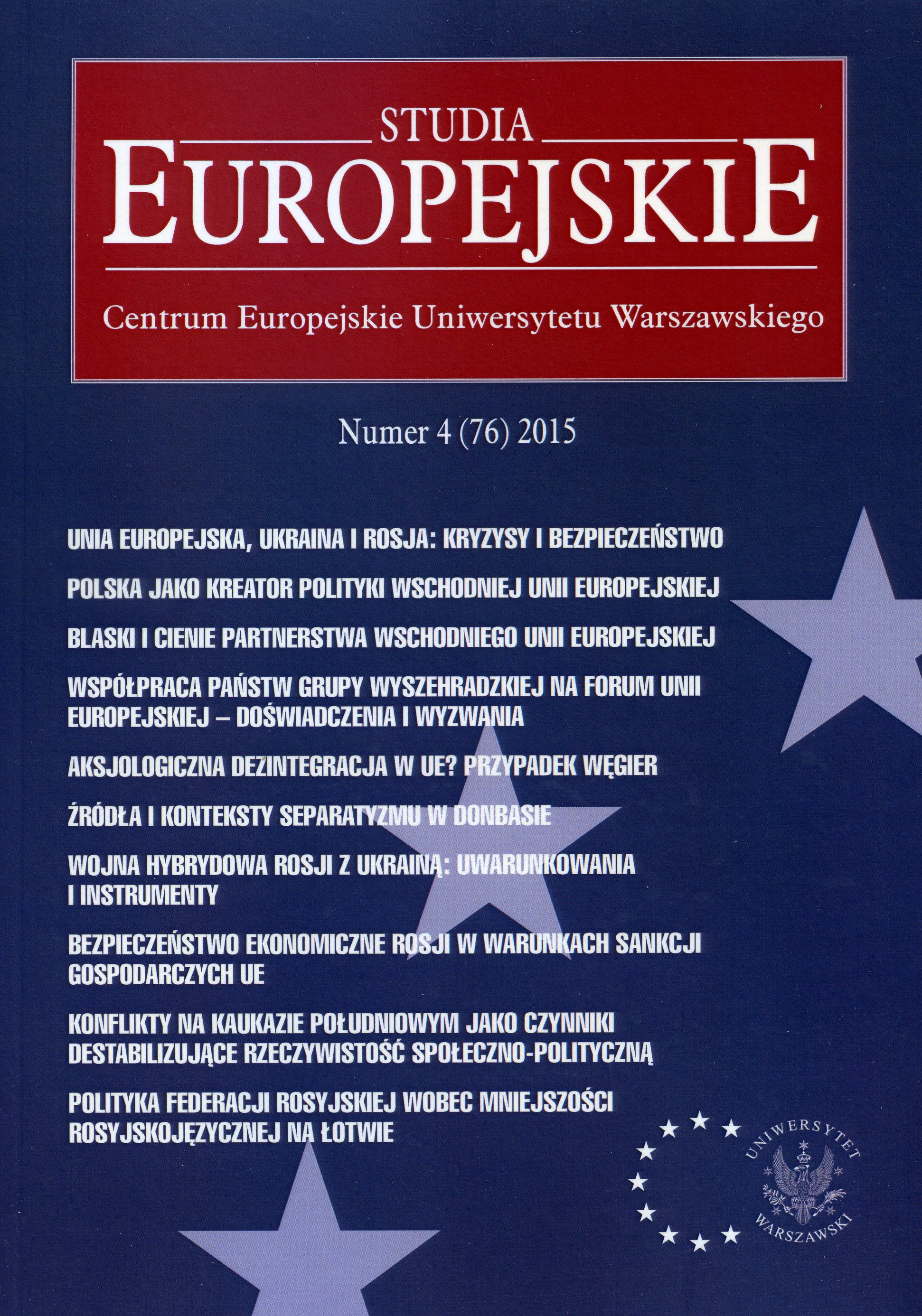Współpraca państw Grupy Wyszehradzkiej na forum Unii Europejskiej – doświadczenia i wyzwania
Cooperation between the Countries of the Visegrad Group in the European Union – Experiences and Challenges
Author(s): Artur AdamczykSubject(s): Politics / Political Sciences, Politics, International relations/trade
Published by: Centrum Europejskie Uniwersytetu Warszawskiego
Keywords: European Union; Visegrad Countries; Visegrad Group; Poland; Czech Republic; Slovakia; Hungary
Summary/Abstract: Cooperation between the members of the Visegrad Group in the European Union has its ups and downs. The countries of the Group, which should be bound by geographical proximity and common interests, are not always able to cooperate. This also means that the priorities formulated by the governments in Warsaw, Bratislava, Budapest, and Prague do not always converge. Of course, the countries of the Visegrad Group have much in common, such as their attitude to the Cohesion Policy, their perception of climate goals and visions of the EU subsequent budgets. Unfortunately, there are many divergences between them in important issues: for example foreign policy, especially the attitude to Russia’s aggression on Ukraine. Despite the fact that it has been functioning for a quarter of a century, including a decade in the EU, so far the V4 has not managed to develop a strong European ‘brand’.
Journal: Studia Europejskie
- Issue Year: 19/2015
- Issue No: 4 (76)
- Page Range: 71-89
- Page Count: 19
- Language: English, Polish

